On Reading Lawrence Durrell En Route to Greece
Safely ensconced in my cabin as the cruiser rolls and rocks gently beneath me, I look up from my book and gaze out through the porthole at a calm, cobalt sea. For over thirty years, this passage from Italy through the island-glutted channel of the Ionian Sea, has signaled the high point of the year: my escape, reward, renewal.
On my first trip years ago, I lay down to sleep on a salt-stiffened beach towel spread out on the clammy deck, waking with the taste of rust on my lips, greeting island after island with a shout of joy as the wind blew my hair into tangles. I travel in greater comfort now, but the visceral enchantment I feel as I watch those islands rise out of the mist hasn’t lessened with time.
I pick up my book again and read: Somewhere between Calabria and Corfu, the blue really begins - penned by Lawrence Durrell in his memoir Prospero’s Cell, describing the very voyage I am making now, which he made in 1935. After this first delightful, sensuous shock, I pause as if to gasp for air before plunging deep again as the text continues: You are aware of islands coming out of the darkness to meet you. The prose tastes so rich I have to savour it in small doses.
How perfectly he describes the excitement I feel as the ship ploughs on towards shores, some of which have now become to me known entities, others still blank spots on a map, where perhaps I will never set foot. Reading Durrell en route to Greece doubly enhances my enjoyment of the journey I am sharing with him across time, while igniting a yearning to find my own words to describe the experience.
Yet Durrell’s words in this and in his other many works about Greece have lent their color and timbre to my own vision of the country. Through writing we recreate our inner worlds by means of language; through reading we merge with the inner worlds of others, who fertilize our own in a sort of parallel universe where myriad lives touch, drift apart, come together again, producing new combinations, influences; atmospheres that are contagious, destinations that don’t exist in real life.
Prospero’s Cell, a memoir recording his five years in Corfu from 1935-1939, opens with an incipit from Shakespeare’s Tempest - in that play, reality is shaped through an artist’s will. Each visitor to Prospero’s island perceives its landscape according to his inner nature and projects upon it the contents of his unconscious mind and his education. Through his magic, Prospero manipulates the other characters’ perceptions and projections. It was perhaps in part this adaptability of the island to the psyche of its visitors [and of the visitors to the island] which inspired Durrell to evoke The Tempest when titling his memoir. While on Corfu, he often felt that the borderline between sleeping and waking was blurred, that different lives unfolded inside him contemporaneously.
Reading Durrell on my way to Greece gives me a similar sensation. Durrell also felt that he and his wife were moved by forces emanating from the spirit of the place itself, of which he, like all its other inhabitants, was receptacle and enactor. In the Tempest,Prospero is the demiurge who creates reality for the others; for Durrell it is the genius loci, the spirit or soul of place, who shapes and colors our experience in a given place.
The Soul of Place
From what do we assemble our idea of a place before we actually see it with the eyes of the flesh? Photographs and films, stories, hearsay, vague imaginings gleaned from fiction, guidebooks, postcards. I can recall some of my earliest imaginings of Greece before I even knew where it was on the map: pictures of the Parthenon in a fourth grade history book, the Greek myths illustrated on a filmstrip shown in English class, and a family story told by a Greek neighbor : returning with her American-born teenage daughter to the impoverished island of her birth, she was scandalized when a young island boy offered her a large flock of goats in return for her daughter’s hand in marriage.
It was the early 70s. An untraveled college freshman, I was astonished by this story. How could such archaic places still exist in our modern world? Greece was, after all, not Bulgaria, secluded behind the Iron Curtain. To me it was a place inscrutable but intriguing : of goatherds, rough ways, labyrinths, ponderous ruins, yet it promised rebirth. You were born in Greece announced the caption of a picture in Life magazine showing two swimmers afloat in a turquoise sea framed by Corinthian columns. For me, that trite slogan turned out to be true, truer than true. Like a mantra it helped bring me to Greece. Whatever Greece was, it was a place where strange and extraordinary things happened, where the archaic might intrude in everyday experience.
Dipping into Mythic Time
According to Durrell, who got the idea from his mentor DH Lawrence, the spirit of place attracts to it likeminded spirits. Greece to me, like Tibet or Italy, is one of the great magnetic centers of the globe. It is a place where rarely I have encountered an elusive shift of consciousness which I can only describe as dipping into mythic time. That’s what keeps me going back, hoping to find another entry, which never happens twice in the same place. I think that was what Durrell meant when he spoke of being suspended between waking and dreaming. There are places that snap us out of our ordinary experience of time and being, allowing us to live on many levels simultaneously.
The first time I experienced that shift to mythic time was on a short cruise to Santorini, Rhodes, and Mikonos, that lasted but four days. Some of the impressions of that journey still surface with the vibrant clarity and unreal colors of airbrushed images whenever I think of Greece. Sailing towards at Santorini at dawn: Towering black slopes sleek as glass where a many- tiered sprawl of white cubes, terraces, arches and stairways proliferated along the cliffs, invading every cranny, punctuated here and there by bright blue domes. From across the water came the braying of donkeys, tiny as ants, creeping down the curves, ready to receive us and carry us to the top.
This was the overture of my own Odyssey, a mythic, archetypal moment never to be recaptured. No other arrival in any port has galvanized my imagination to the same degree. I tasted the thrill of discovering a new world, as Marco Polo describes to Kubla Khan in Calvino’s Invisible Cities.
Subsequent journeys to that island, while filling my eyes with sublime impressions of sea, sky, cliffs where all shades of blue - turquoise, cobalt, azure, aqua marine play off against the dazzling white-washed geometry of Cycladean architecture did not grant me a second shift into mythic awareness -- even though twice I nearly risked my life. Once on an overstuffed bus wobbling out of control as it skidded down the slopes, one wheel teasing the edge of a precipice; another time when I was almost trampled by the crush of tourists clambering to reach the chair lift to go back down to port. I still shudder with relief when I think back on those episodes. Yet those dramatic misadventures were rooted in this time, limited to it.
Some claim that the shift to higher attention comes to them through danger, speed, orgasm, or prayer, for me it sometimes comes through the mysterious connecting to a landscape that happens unbidden, by grace. Once in an obscure village in Crete, in the baking heat, I wandered the entrails of a labyrinth trying to perform a meditation procedure I had read about, hoping for an illumination that didn’t come.
But two days later, standing before a gorge in the blazing sun, peering into its dark interior out of which swept two hawks grazing my head in warning, I saw the towering V- shaped walls of the gorge as the massive thighs of a goddess splayed in birthing and I knew that everything below it - the promontory, the cliffs, the earth and stones, the soil and sand, the sea with islands in the offing, the village below, and I myself, had all been pushed out of nothingness into the sunlight through that narrow channel.
I understood for the first time the expression earth mother and my connection to her. I understood why the people of this ancient island worshipped her. I had received a fragment of another kind of knowledge, from another era, hidden in the folds of the Cretan landscape. Then the awareness vanished, and I was my ordinary little self again, a plump older woman in a pink straw hat, standing in a field of dry yellow grass, high on a promontory poised between a gorge and the sea, gazed at by curious donkeys.
The engines begin to vibrate as the ship maneuvers into docking position. Soon I’ll be asked to leave my cabin and disembark. What will this new journey bring? I fan the pages of my Durrell reader by way of divination, choose a page at random and point to a line: “...travel becomes a sort of science of intuitions.”
“We travel,” said my husband the other night at dinner, “ to collect fragments of another time.” Durrell repeatedly describes Greece as a place of self -discovery. I’d go farther: it’s a place where you discover you are far more than you imagine.
If you enjoyed this piece, you might have a look at my place-writing guide - The Soul of Place: Ideas & Exercises for Conjuring the Genius Loci






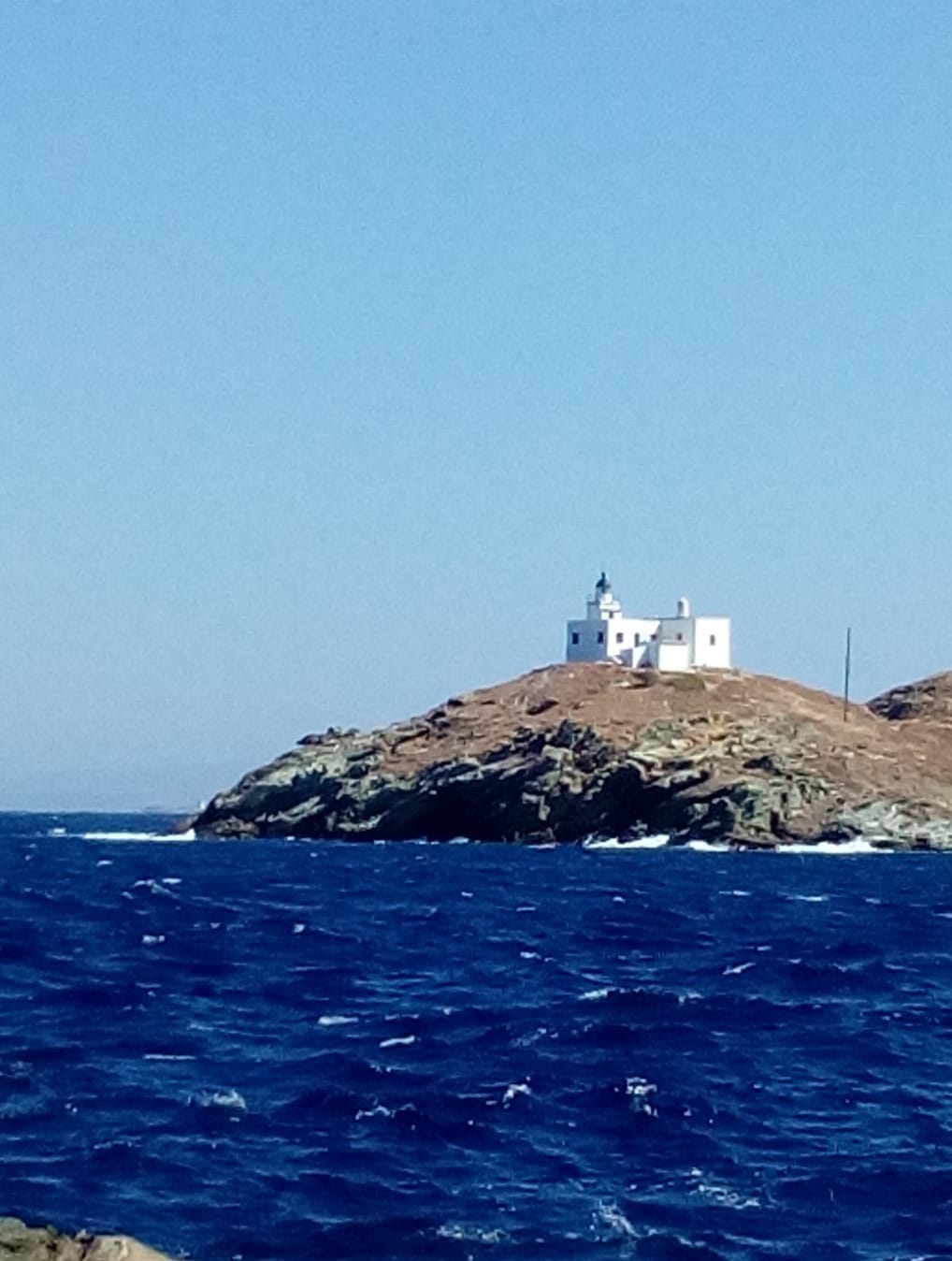
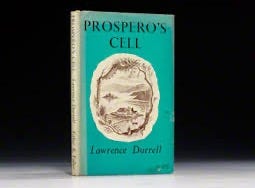
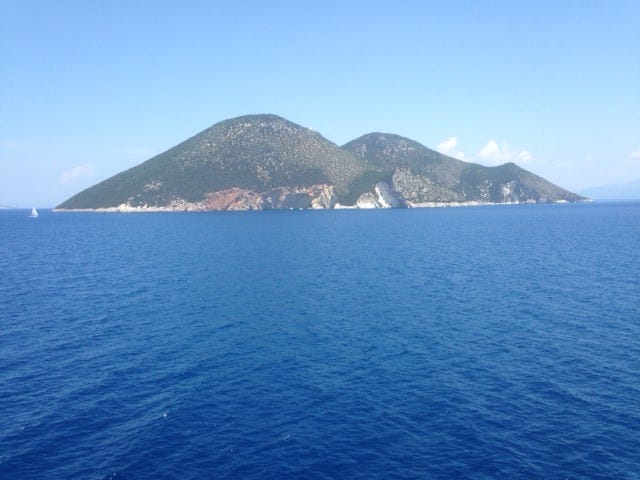
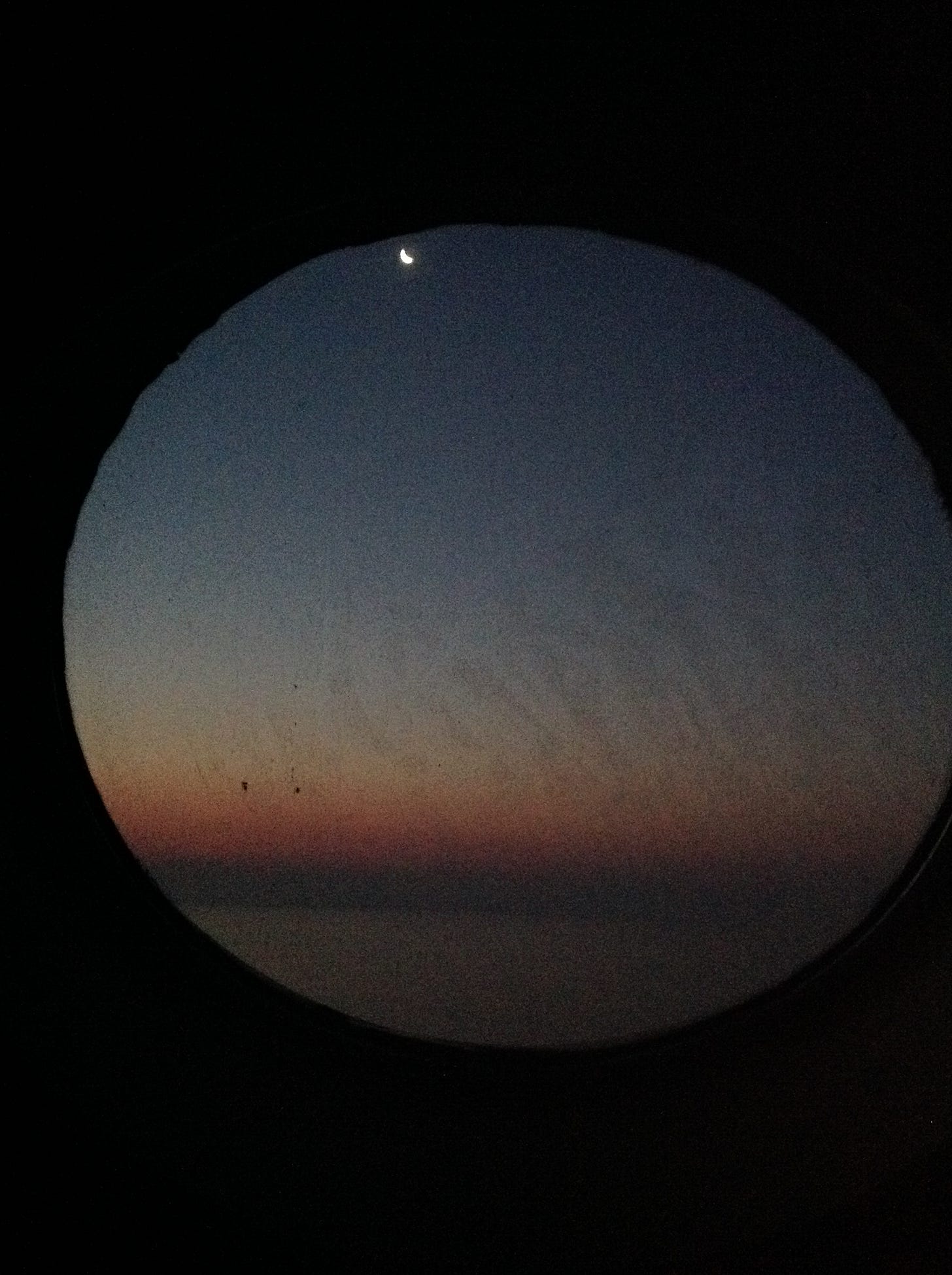
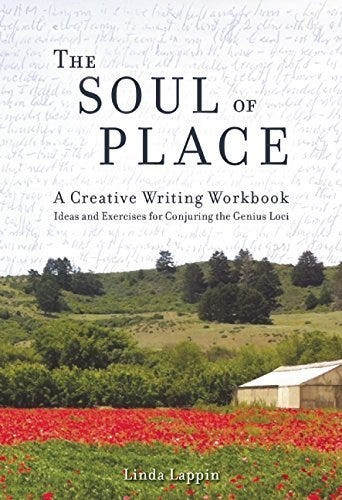
What a gorgeous piece. And taking the ferry over the Adriatic to Greece is one of my fantasies of things I'll do when I go full-time in Italy next year. Do you mind sharing which city you're departing from?
This is beautiful, Linda - are you okay with me sharing it on social media?